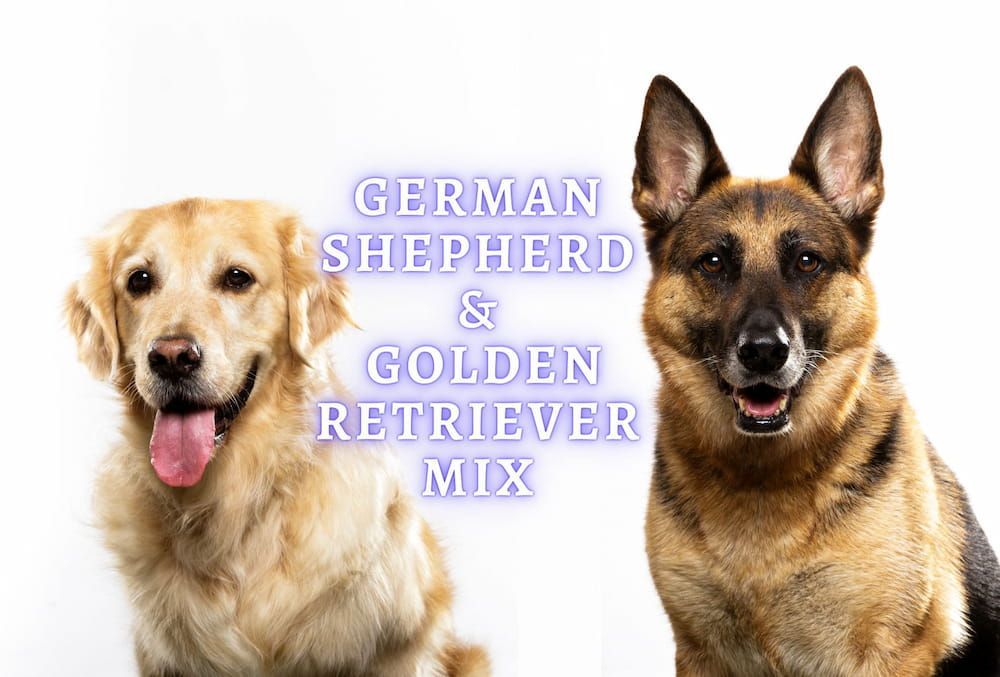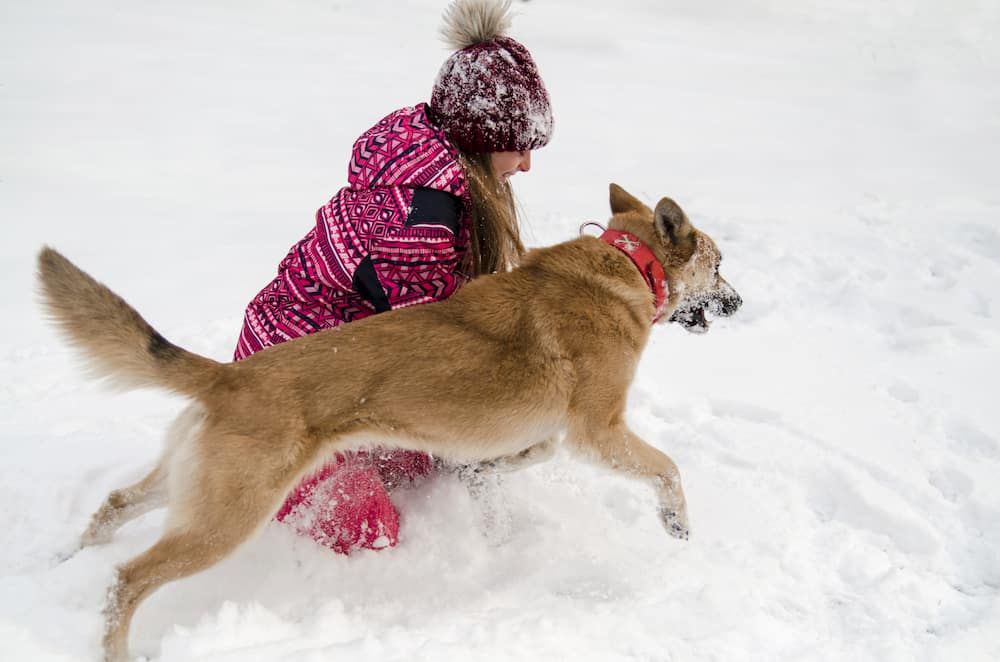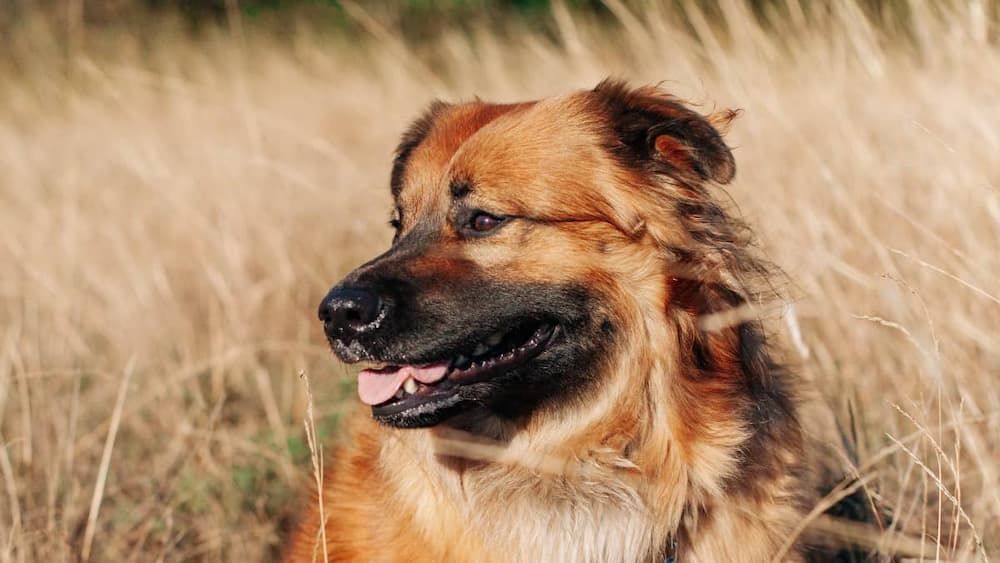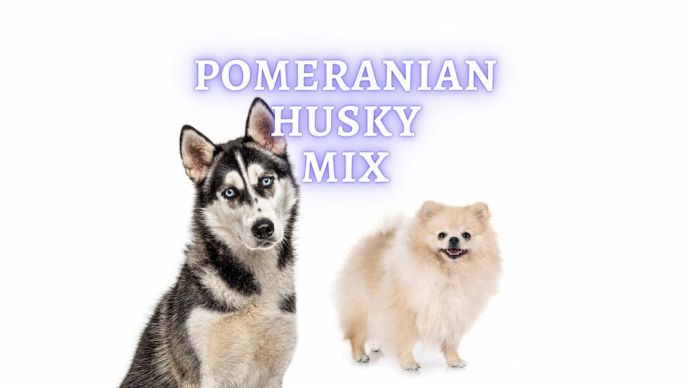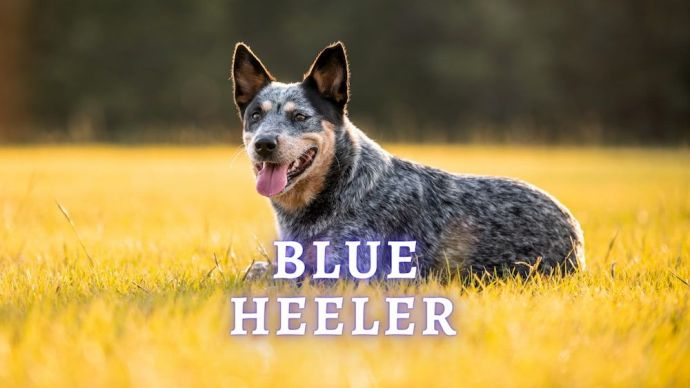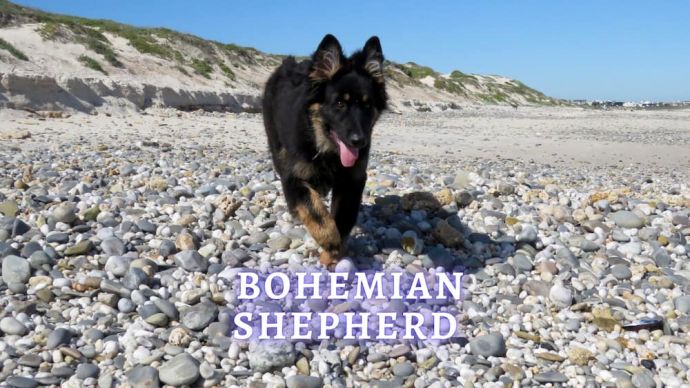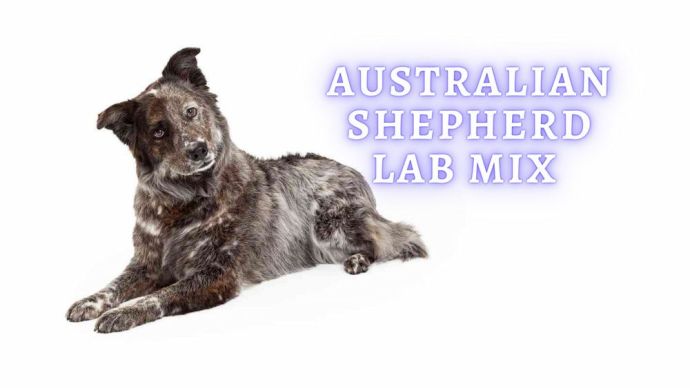German Shepherd Golden Retriever Mix: Golden Shepherd Temperament, Care and Adoption
Written by:
Author: Seb Jenkins
Seb is a professional SEO writer with a degree in Journalism, he has five years of experience in writing and editing. Seb specializes in topics like dog and cat breeds, aquarium guides, and pet care. He is passionate about educating and entertaining animal owners worldwide. In his spare time, Seb enjoys writing fiction novels.
View all 83 articlesLearn about our editorial process and veterinary review board.
Viewed: 577
Updated on: 06/08/2023
German Shepherds and Golden Retrievers are among the most loyal dog breeds in the animal kingdom, so it comes as no surprise that a mixed breed between the two truly makes for a best friend. The German Shephard Golden Retriever mix inherits come of the best qualities from both parents, resulting in this large, energetic, and loving bundle of joy. As with any dog breed, it is always a good idea to research what you are getting yourself in for before inviting the pup into your home.
Fortunately for you, we have compiled an all-you-need guide on German Shephard Golden Retriever mix dogs below!
Characteristics
The following are the main characteristics shown by the Golden Shepherd:
| Height | 21-26 inches |
| Weight | 50-80 pounds |
| Lifespan | 9-13 years |
| Coat | Dense double coat |
| Colors | Black, tan, cream, red, blue |
| Shedding | Lots |
| Temperament | Loyal and loving |
| Intelligence | High |
| Social skills | Very good with people |
| Destructive behaviors | Can chew on things and eat food that is left out. More destructive when lonely. |
| Other issues | Separation anxiety |
| People skills | Loyal and loves to be given a job. |
| Children | Great with kids. |
| Energy levels | Lots of energy – Needs lots of exercise. |
Breed History
Unlike many crossbreeds, the Golden Shepherd may have actually existed naturally over the years. That being said, the mix started to gain attention amongst breeders back in 2009. The ultimate aim was to create the perfect family dog while also reducing some of the health problems that Golden Retrievers and German Shephard pure breeds suffered. As the demand for this new crossbreed skyrocketed, so did the supply.
In the first few years after 2009, Golden Shepherds were seen as designer dogs.
However, they soon started to filter their way into the shelter and rescue organizations.
Interesting Facts
- The Golden Shepherds are mixed breed dogs, not pure breed like the individual parents.
- They can be friendly with other animals if they are exposed and trained how to interact with them.
- These dogs need at least one hour of walking per day.
- Hiking and other more adventurous activities are a great way to give the Golden Shepherds the exercise they need.
- Golden Shepherds like to carry things in their mouths, but give them sturdy toys or else they won’t last long.
- Golden Shepherds come in a variety of colors, including black, blue, tan, red and cream.
- These dogs are not a good choice for any owners with allergies.
READ MORE: Super Chewer Box Review – Most Durable Dog Toys
Temperament and Personality
The Golden Shepherd was literally designed to be the perfect watchdog and family dog as we explained before. They are extremely loyal and protective of the ones they love, and a Golden Shepherd friend is a friend for life. Therefore, that is essentially what you get with them.
Having said that, they can certainly show their dark side when needed. If an intruder is in or around the house, your Golden Shepherd will undoubtedly let you know about it. This is why they often find work as guard dogs and military dogs. While the Golden Retriever parent is usually deployed as a guide dog or in hunting, the Golden Shepherd loves being given a job to do. They thrive when a sense of purpose is handed to them.
Golden Shepherds require lots and lots of exercise and each and every day in order to keep them stimulated both physically and mentally. Walking these dogs is not enough on its own to satisfy their exercise needs. It is best to provide a varying degree of activities from them. This can include hour-long walks, but also running, search play, swimming, hiking, and more.
Thanks to the trainability of both the Golden Retriever and the German Shepherd, the Golden Shepherd is also very easy to train. They love positive reinforcement, so take advantage of that in your training.
While Golden Shepherds are extremely friendly and loving towards members of the family, they may often act aloof around people they do not know very well. You should also avoid leaving your Golden Shepherd on their own for extended periods of time as they can become bored, frustrated, lonely and depressed. All of this can lead to them acting out.
| Category | Rating (out of 5) |
| Adaptability | 3 |
| Adapts to apartment living | 2 |
| Energy levels | 5 |
| Adapts to being alone | 1 |
| Tolerates cold weather | 5 |
| Tolerates hot weather | 4 |
| All-around friendliness | 5 |
| Affectionate with family | 5 |
| Kid-friendly | 5 |
| Dog-friendly | 3 |
| Cat friendly | 3 |
| Friendly with strangers | 5 |
| Health and grooming | 3 |
| Shedding | 5 |
| Drooling | 2 |
| Easy to groom | 2 |
| Easy to train | 5 |
| Exercise needs | 5 |
| Intelligence | 5 |
Activity and Exercise Requirements
As we touched on previously, short walks alone are not enough for a Golden Shepherd. At the very least, you should be taking them on hour-long walks per day. However, ideally, you should mix up the activities and let them do more adventurous stuff too. This exercise can include running, search play, swimming, hiking, and more. Because the Golden Shepherd is so intelligent, they need variation to stay stimulated. If your dog inherits the Golden Retriever’s love for the water, swimming could be your best bet. Brain games are also a great way to keep your dog enthused throughout the day.
As the Golden Shepherd is such a large and energetic dog, it is ideal to have access to a decent-sized yard for them to run around and play in. The Golden Shepherd loves a nap in the day, but they prefer to spend most of their time out in the fresh air. As such, they are not very well suited to apartments or small houses without gardens.
RELATED: Best Toys for German Shepherds
Feeding and Diet
The Golden Shepherd is a large dog with lots of energy, so their diet should reflect that. However, just like their parents, Golden Shepherds have a tendency to overeat if you let them, so keep an eye on weight gain. Stick to a regular feeding schedule and try not to deviate from it if possible. That also means limiting the number of treats you give them and making sure there is no food left out because they will find their way to it.
As with any dog, your Golden Shepherd’s diet will change as it grows from a puppy into an adult and then into old age. It is always a good idea to ask your vet about your specific Golden Shepherd during your next check-up. Ask them for recommendations as there is a huge amount of variation from dog to dog when it comes to Golden Shepherds.
READ MORE: Best Raw Dog Food (Vet Review)
Grooming and Shedding
A Golden Shepherd usually has a coat that is a mixture between the two parents, both in thickness and color. There can be a mixture of colors between the common ones seen, but Golden Shepherds are mainly black, red, blue, tan or cream.
The average Golden Shepherd has medium-length hair, which is on the dense side.
They also shed a fair bit of hair, meaning they are one to avoid for anyone with allergies. Even if you are not allergic, you need to have your vacuum cleaner at the ready! Having said that, it is actually pretty easier to take care of their coats, all you need is a good brush once per week. We recommend that you also give them a bath with mild shampoo once every three months or so. Any more than this can damage the coat. The dense double coat means Golden Shepherds are more than happy to run around in the wind, rain and snow. In fact, the coat is so adaptable that it cools them down in the summer months too.
RELATED: Best Online Dog Grooming Courses
Known Health Problems
The Golden Shepherd was partly first bred in order to reduce some of the health problems faced by its two parents. However, these mixed-breed dogs are still predisposed to many similar problems. The two most common health problems are hip and elbow dysplasia and digestive issues which can cause bloating and diarrhea. It is important to take them on regular check-up visits with the vet in order to monitor their health, although most German Shepherds are healthy.
Training
Fortunately, the Golden Shepherd is pretty easy to train, or at least very receptive to training as long as you use the correct methods. Positive reinforcement is a great tool when training a Golden Shepherd because they love to please their owners. They also love to be given a job to complete. All of this makes training a pleasure.
We find that Golden Shepherds actually respond better to praise from the owner or a new toy over treats. This also helps with the problem of weight gain as you shouldn’t really be offering them too many treats. Aim for reward-based training with lots of positive language, praise, play, and toys like tennis balls.
It is also important to make sure your Golden Shepherd is exposed to social situations from a young age. There is a chance they will inherit the protective nature of a German Shepherd. Therefore, you should introduce them to unfamiliar people of different genders and sizes. They need to learn that if you welcome someone into the home, the Golden Shepherd should welcome them too. Not every stranger is an intruder. This same concept should go for other dogs too.
The Golden Shepherd is an extremely clever dog. They will not learn new commands of behaviors unless you teach them and maintain that training. However, this requires a very firm owner who does not let training slip. Get the whole family involved in this process so everyone is on the same page.
Adoption
Because Golden Shepherds are a mixed breed, it can often be difficult to find them in rescue centers these days, especially if you are looking for a certain age.
Having said that, there are Golden Retriever and German Shepherd-specific rescues that may house some Golden Shepherds, so it is worth checking there:
Breeders
The most direct route to sourcing a Golden Shepherd is via a breeder. This is especially the case if you have your heart set on a puppy. Golden Shepherds are bred using Golden Retriever and German Shepherd parents and there are a number of experienced breeders out there who provide regular litters. However, we urge you to check your local adoptions and rescue centers first to see if you can give a home to a lovely Golden Shepherd. Of course, that is your choice.
To find the best breeder for Golden Shepherd puppies, we recommend that you research online for your local options. There should be reviews for each breeder, so you can see who has a good reputation and who should be avoided.
Conclusion
And there we have it, our complete guide to the Golden Retriever German Shepherd mix. This should give you all the starter information you need to confidently make a decision on whether you want to adopt or purchase a Golden Shepherd. We wish you all the best with your new best friend! Feel free to refer back as you welcome the new dog into your home for tips on training, health, exercise, and more.
FAQs:
Is a Golden Retriever German Shepherd mix a good dog?
Golden Shepherds are great family dogs because they are so loving and loyal. They are ideal for a family home setting as they are great with kids and serve as a trusty guard dog. However, they do require lots and lots of exercise.
How much is a German Shepherd Golden Retriever mix?
The average price for a Golden Shepherd puppy is $800 and over.
Are Golden Shepherds aggressive?
Golden Shepherds are not naturally aggressive by nature. However, they are very loyal and protective dogs with parents who are often used in hunting and military jobs, so they can be aggressive when they need to be. They are great dogs as long as they are trained to know the difference between a stranger and a danger.
How big is a Golden Shepherd?
Adult Golden Shepherd dogs are 21-26 inches tall and weigh between 50 and 80 pounds, so they are large dogs and require both a lot of space to run around in and plenty of exercises.
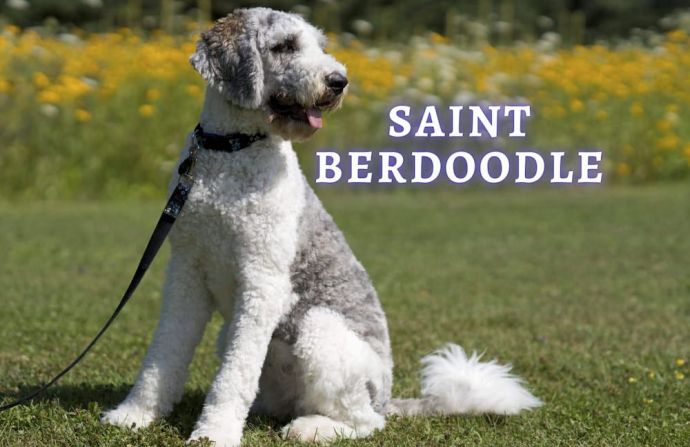 Dog Breeds Saint Berdoodle: Saint Bernard and Poodle Mix Size, Personality and Care
Dog Breeds Saint Berdoodle: Saint Bernard and Poodle Mix Size, Personality and Care - 1435
- 0
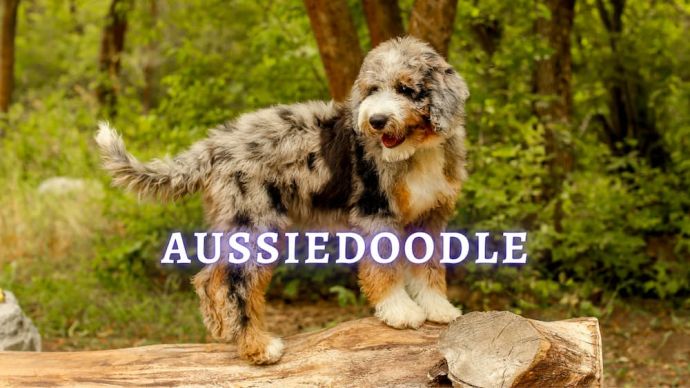 Dog Breeds Aussiedoodle: Breed Info, Personality, Activity Level and Life Span
Dog Breeds Aussiedoodle: Breed Info, Personality, Activity Level and Life Span - 1282
- 0
 Dog Veterinary Tips Why is my Dog throwing up: Causes and Preventing (Veterinary Advice)
Dog Veterinary Tips Why is my Dog throwing up: Causes and Preventing (Veterinary Advice) - 23424
- 5
 Dog Care Why Is My Dog Bleeding From Its Butt? Causes and treatment of rectal bleeding in the dog
Dog Care Why Is My Dog Bleeding From Its Butt? Causes and treatment of rectal bleeding in the dog - 22076
- 0
 Dog Care My Dog Keeps Scratching His Mouth: Reasons Why Your Dog Scratching Face
Dog Care My Dog Keeps Scratching His Mouth: Reasons Why Your Dog Scratching Face - 17561
- 1









